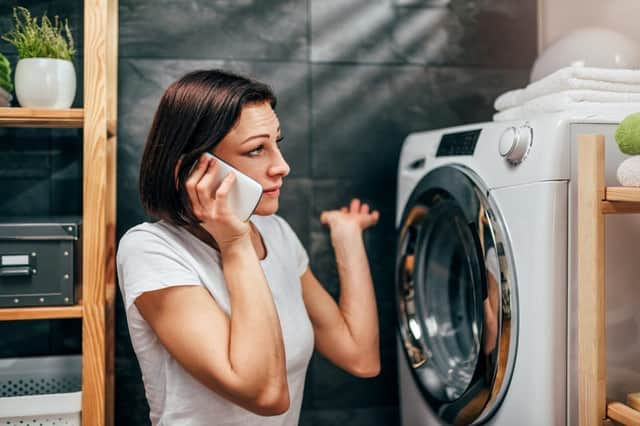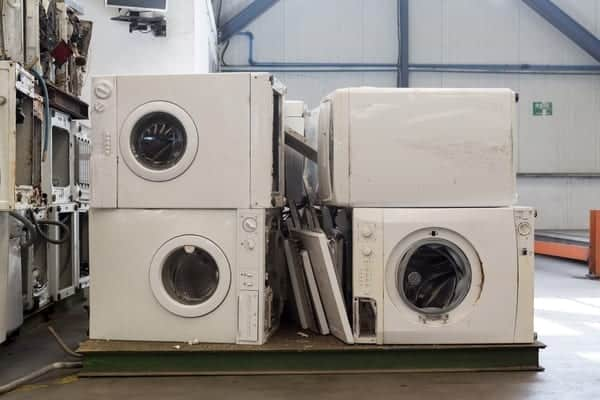Manufacturers will have to repair household electrical items for 10 years thanks to new law


Manufacturers of household electrical items are soon to be forced to keep repairing goods for at least 10 years after you buy them, under new EU laws.
The new rules require firms to meet minimum repairability requirements, in a bid to slash waste and keep products out of landfills.
'Right to repair'


Advertisement
Hide AdAdvertisement
Hide AdFrom 2021, manufacturers will businesses will have to ensure that electrical household appliances - such as washing machines, dishwashers and fridges - last for up to 10 years after purchase.
The rules, which also extend to items including lighting and televisions, apply to products sold across the EU and aim to extend the lifetime of products.
The new EU-wide laws set minimum 'durability' standards for items, ranging from around seven to 10 years, meaning items shouldn't stop working within this time frame. If they do, consumers will have a right to repair.
The measures have been introduced to cut down on waste and improve product durability (Photo: Shutterstock)


What do the rules cover?
The rules will apply to the following electrical items:
Advertisement
Hide AdAdvertisement
Hide AdRefrigeratorsRefrigerators with a direct sales functions (e.g. fridges in supermarkets and vending machines for cold drinks)Washing machinesDishwashersElectronic displays (including televisions)Light sources and separate control gearsExternal power suppliesElectric motorsPower transformersWelding equipment
The new measures have been introduced as part of the EU's Ecodesign Directive, which removes the most wasteful products from the market and replacing them with items that use less energy and fewer resources.
The EU aims to cut demand for new products and carbon emissions linked to the manufacture, distribution, use and disposal of goods, with the standards previously agreed by all 28 EU governments in January this year.
British firms who want to sell products to Europe after the UK leaves the EU will have to follow the new rules to do so.
Advertisement
Hide AdAdvertisement
Hide AdFrom 2021, firms will be forced to ensure that appliances can be easily fixable using commonly available tools and without damage to the product. They will also have to make sure that spare parts and repair information will be available to professional repairers for a minimum number of years.
Consumers will still have to pay for repairs and be within warranty or guarantee (Photo: Shutterstock)
Will repairs be free?
Repairs will still come with a cost and consumers will still need to be within warranty or guarantee to have any faulty items fixed. However, the rules will make repairs much easier to carry out, making it more cost-effective to fix than purchase a new replacement.
Consumers already have a number of rights if their products break, with the Consumer Right Act 2015 covering goods and services (including digital items) and whether they are 'satisfactory quality, as described, or fit for purpose'. If your goods don't fit into these categories, consumers can seek a refund, replacement or repair, depending on when you purchased the product.
Advertisement
Hide AdAdvertisement
Hide AdIf an item was bought online or on the phone, you have 14 days to return it under the Consumer Contract Regulations 2013, whereas items purchased in-store will depend on the policy of the shop.
The Consumer Rights Act states that you have 30 days from the date of purchase to return the item if it is not as described, and you are entitled to a full refund it is returned in this period.
If an item is faulty you have up to six months to return it, with retailers permitted the chance to repair or replace the item, before you can ask for a refund.